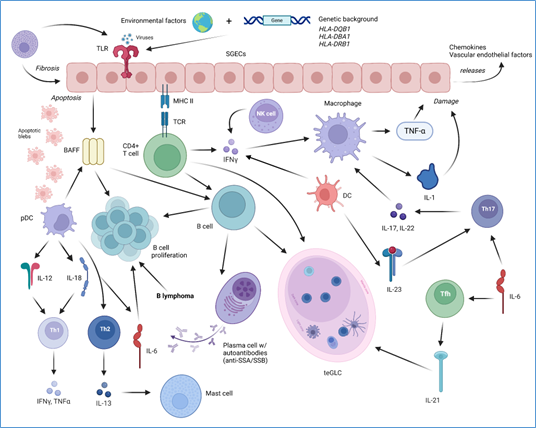


This work is licensed under a Creative Commons Attribution 4.0 International License.
Sjogren’s syndrome (SS) is one of the most common chronic autoimmune diseases primarily affecting the salivary and lacrimal glands, leading to dry mouth and dry eyes, with systemic involvement in severe cases. This article provides an overview of the pathogenic mechanisms underlying SS, including genetic predisposition, immune dysregulation, cytokine imbalances, autoantibody production, and metabolic alterations. Additionally, advancements in treatment strategies are discussed, ranging from symptomatic relief to targeted biological therapies, such as B-cell depletion and cytokine modulation. While significant progress has been made in understanding the pathological mechanisms of SS, challenges persist in disease classification, biomarker identification, and therapeutic development. Future research is needed to focus on refining diagnostic criteria and exploring novel therapeutic interventions to improve disease management and patient outcomes.





